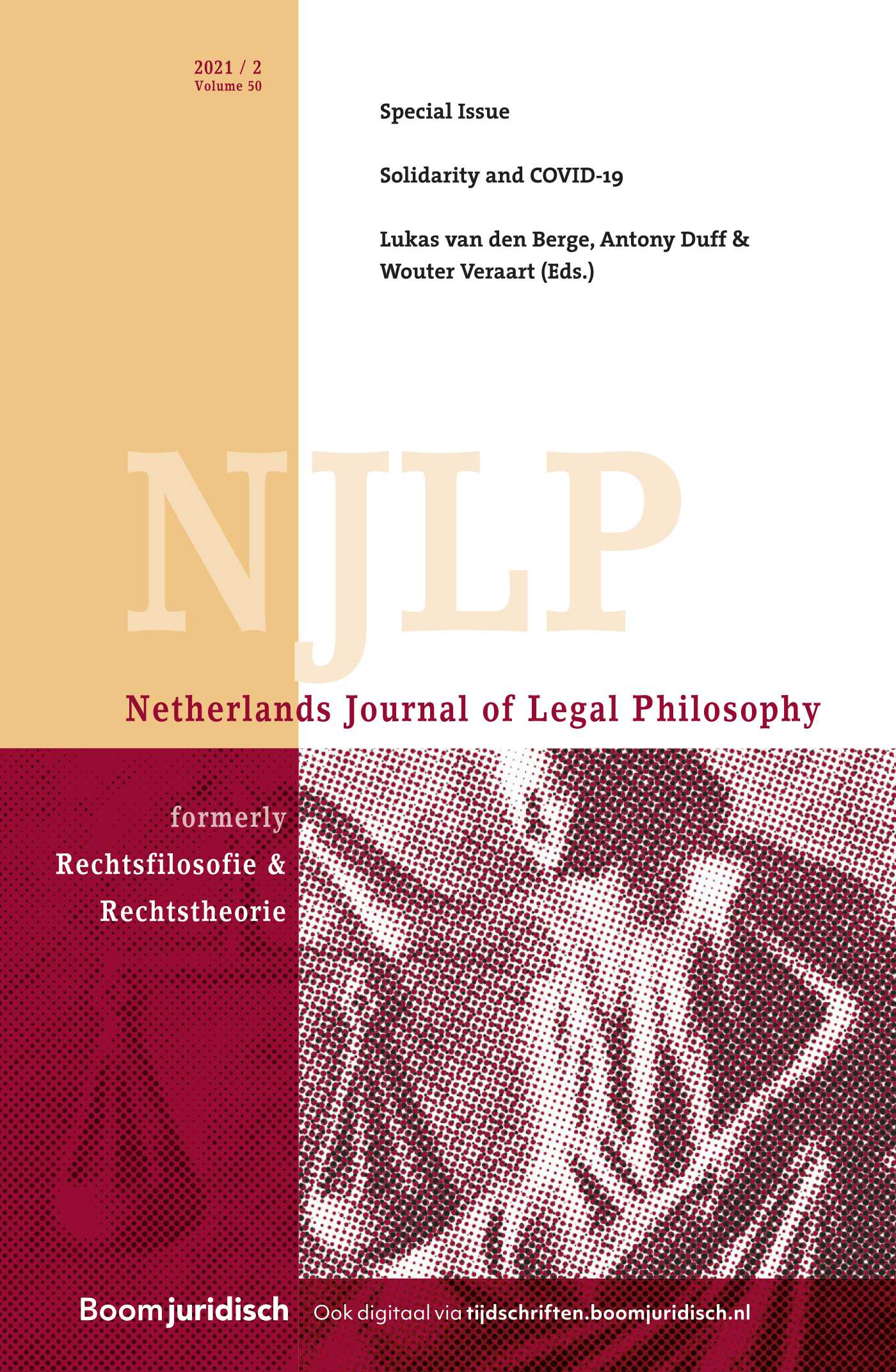|
In alternative to Virtue Jurisprudence, the aim of this contribution is assessing the claim that legal virtues develop along with the deepening of the law’s knowledge within its practice, as well as with the grasp of the role that law plays within society. This fits with the idea of virtues rooted in practices. Legal virtues do not depend – at least entirely – on pre-existing moral qualities related to human capacities, but are related to practice of law. The latter is well defined by the virtue of law, the rule of law, that is not only indicating a mode of government, but it also entails a specific model of social ordering. From this perspective, the main legal virtues necessary to uphold the rule of law are reflexivity, fidelity to law, and teamworking. These virtues are related to each other and to many other virtues. |


Netherlands Journal of Legal Philosophy
About this journalSubscribe to the email alerts for this journal here to receive notifications when a new issue is at your disposal.
| Article |
|
| Keywords | Virtue ethics, Rule of law, Reflexivity, Fidelity, Teamworking |
| Authors | Isabel Trujillo |
| AbstractAuthor's information |
| Article |
|
| Keywords | Virtue, policing, bravery, justice, honesty, ethics |
| Authors | Luke William Hunt |
| AbstractAuthor's information |
|
The police are routinely recognized for displaying heroic virtues associated with combat. I take a contrarian position in this paper. Part I begins with the claim that if bravery is to be prioritized in policing, then bravery should be part of the police’s routine roles and responsibilities. However, bravery is not central to what the police do every day, and, therefore, shouldn’t be prioritized (in recruiting, training, and so on). Conversely, Part II claims that if the virtue of honesty is centrally connected to the police role, then it should be prioritized in policing. Because honesty is deeply connected to the police’s routine roles and responsibilities, it should be prioritized. By turning away from misconceptions about the police, the hope is that we will be in a better position to see both the practical and the moral importance of virtue in policing. |

 Issue Pre-publications
Issue Pre-publications